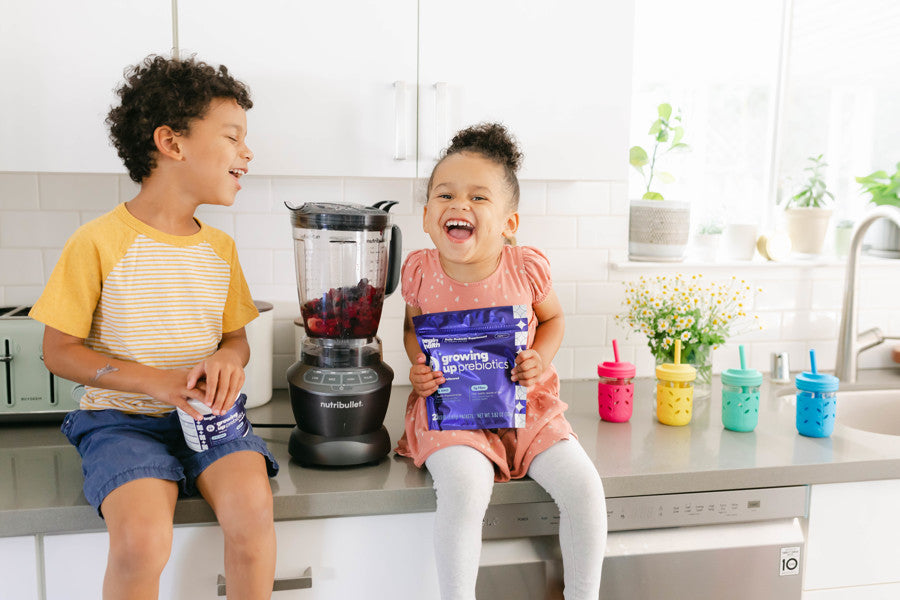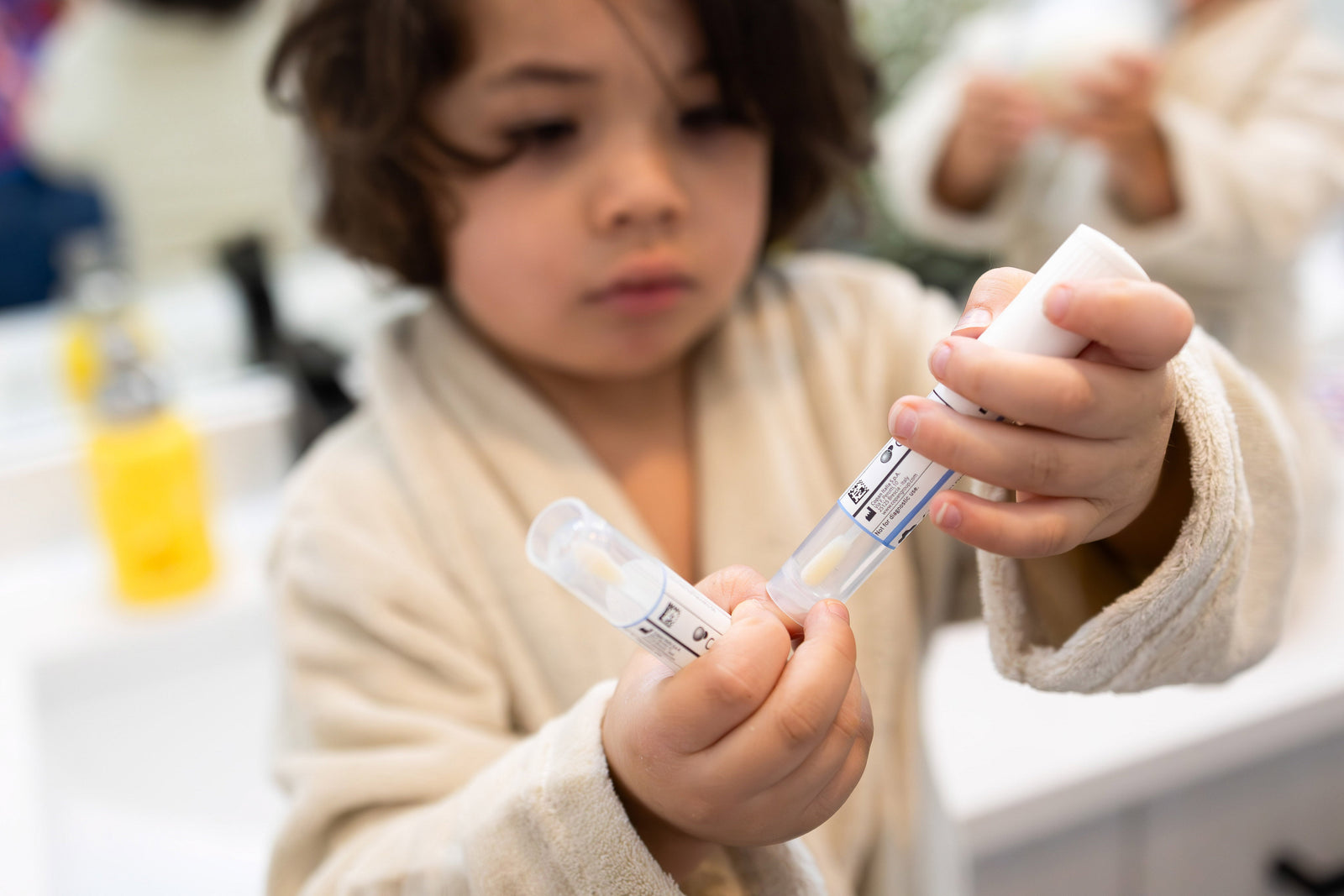Your Cart is Empty
Continue shopping5 Examples of Prebiotic Foods Kids Love
Medically Reviewed by May Zhu, RDN | Published November 23, 2023
share this article

We get it, it’s not always easy to get kids to eat nutritious foods. As a dietitian committed to promoting healthy habits in kids, I see parents struggle daily to get their little ones to eat enough fruits and vegetables.
We know that prebiotic fiber is important for nurturing a healthy gut microbiome in kids, but how do we get kids to actually eat foods that contain prebiotics?
The great news is that there are several prebiotic options that generally resonate well with our little ones - it’s all about presentation and how we introduce these foods to our kiddos.
Let's review five examples of these nutrient-rich and delicious options in this blog.
1. Berries
Berries, such as blueberries and strawberries are naturally sweet and colorful, making them a fun option for kids.
They contain polyphenols and prebiotic fiber that contributes to a diverse gut microbiota.
Studies find that blueberries in particular can promote beneficial bacteria growth for a more balanced gut environment [1,4].
One cup of blueberries provides 4g of fiber to support regularity. For a fun way to serve blueberries to kiddos, check out this recipe for a two-ingredient blueberry vegan “nice” cream.
Begin Health Expert Tip
Have an extra picky eater in the family? Our Growing Up Prebiotics provides 3g of prebiotic fiber in a tasteless, textureless powder. Just mix one serving into your kid's water, favorite beverage or soft foods to help them meet their daily fiber goals.
2. Apples
Pectin, a type of fiber found in apples, acts as a prebiotic to provide benefits for gut health.
Research suggests that pectin promotes the growth of beneficial bacteria like Lactobacillus and Bifidobacterium, supporting healthier digestion and improved immunity [5].
Try slicing apples into rings and serving them with your kiddo’s favorite gut-friendly nut butter as a healthy afternoon snack.
3. Sweet Potatoes
Sweet potatoes are naturally sweet which makes them a great introductory fiber-rich vegetable for kids to try.
This root vegetable contains two types of fiber: soluble and insoluble. Soluble fiber increases healthy gut bacteria, which in turn, help improve digestion. Insoluble fiber on the other hand, can help support constipation relief [3].
Sweet potatoes can be served in many different ways, with the most common being sweet potato fries, mashed sweet potatoes or baked sweet potatoes.
If you have a picky eater who is hesitant to try sweet potatoes due to texture issues, try switching up the way they are served.
4. Pears
Pears are not just refreshing and sweet but also a great source of prebiotic fiber. Pears, similar to prunes, contain natural sugars that act as a gentle laxative [6].
Getting creative with pear slices and turning them into these puppy pears can be a fun way to get kiddos to enjoy more of this healthy fruit.
5. Green Kiwi
Data from research studies reveal that consuming two green kiwis daily for four weeks consistently increased bowel movements and decreased gastrointestinal comfort [7].
Kiwis have also been studied for its prebiotic effect, boosting friendly gut bacteria such as bifidobacteria for digestive health [8].
For a fun snack twist using kiwis, try freezing slices and turning them into frozen kiwi popsicles.
Daily reads to help your little ones lead happier and healthier lives.
Buy Now
Join the
Happy Gut Club
Recommended Daily Fiber Intake by Age
|
Age (years) |
Fiber (in grams) |
|---|---|
|
1 to 3 years |
19 grams |
|
4 to 8 years |
25 grams |
|
9 to 13 years (female) |
26 grams |
|
9 to 13 years (male) |
31 grams |
Source: Cleveland Health Clinic
Summary
Prebiotic foods can be both delicious and beneficial for our kid’s health.
Ensuring a diverse range of prebiotic-rich foods such as berries, apples, sweet potatoes, pears, and kiwis in your kid’s diet can create a foundation for their gut health, supporting a healthier digestion and immune system.
Need more support for expanding your kiddo’s food palate? Check out our tips here from a Registered Dietitian: 4 Tips to Expand your Picky Eating Kid’s Food Palette.

Author
May Zhu, RDN
Trending

Why Parents Are Choosing Prebiotics Over Stool Softeners for Kids
read now
Inc. Names Begin Health to Its 2025 List of the Fastest-Growing Private Companies in the Midwest
read now
Oxalates and Kids' Digestion: How High-Oxalate Foods Contribute to Constipation and Gut Discomfort
read now






